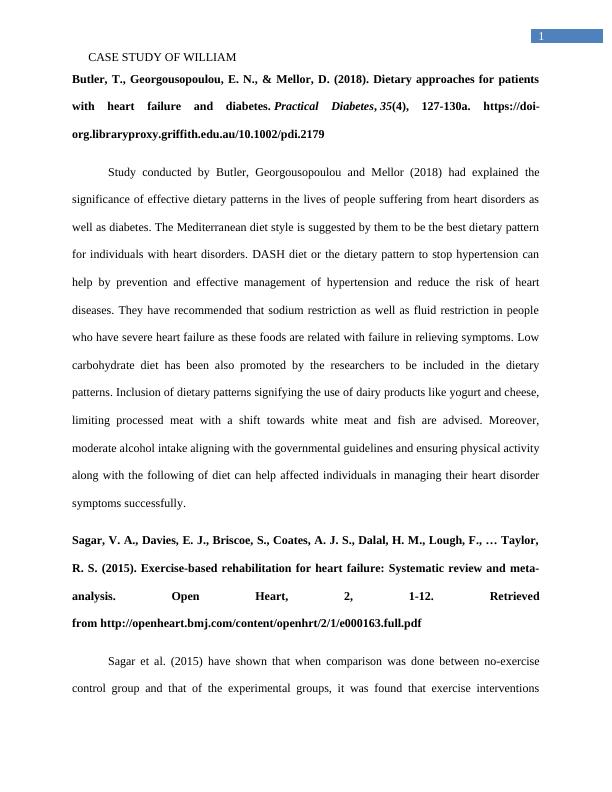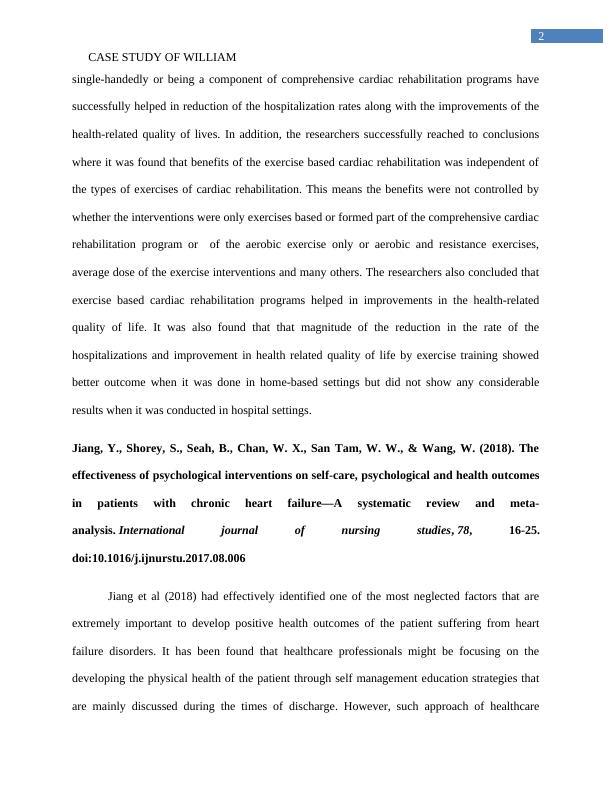Case Study of William: Effective Dietary Approaches, Exercise-based Rehabilitation, and Psychological Interventions for Heart Failure and Diabetes
Added on 2023-04-22
10 Pages2515 Words178 Views
End of preview
Want to access all the pages? Upload your documents or become a member.
Dietary Approaches for Patients with Heart Failure and Diabetes
|10
|2700
|100
Dietary Approaches for Heart Failure and Diabetes
|8
|2552
|27
Dietary Approaches for Heart Failure and Diabetes
|8
|2366
|184
Empowering Patients to Manage Cardiovascular Health Disorders in Singapore
|5
|717
|73
An Annotative Bibliography Justifying and Making Recommendation to William – a 75-Year Old Man with Worsening Chronic Heart Failure
|9
|1974
|379
Nutritional Therapeutics | Case Studies
|9
|2498
|21



